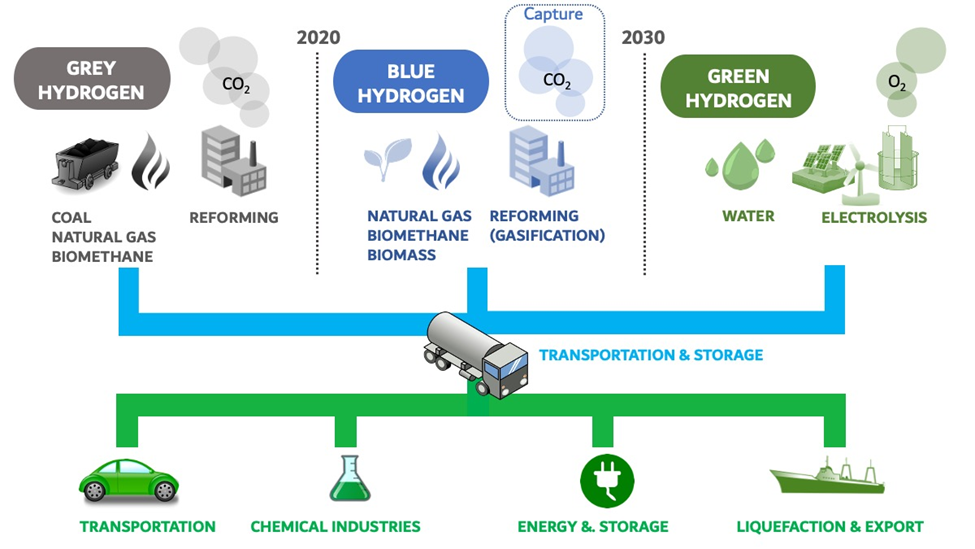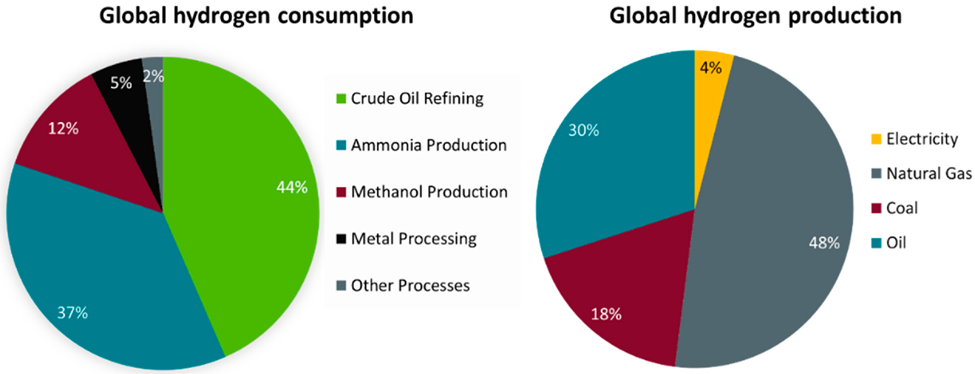What is the Best Renewable Energy to Power Zero-Emission Marine Vessels?
We often get asked to compare electric propulsion to hydrogen fuel cells. Each has their advantages. In the long-run, we believe one will be the clear winner and this blog post explains why.
Vessel operators are in a difficult dilemma of having to invest in a lot of zero-emission energy generation/storage that does not effectively meet the energy needs in most use cases, but is essential for having zero-emission operation today. The challenge is that no zero-emission energy generation or storage comes has the energy density of diesel (see table below) as measured by the specific energy in watt hours per kilogram.
|
Energy Storage/Generation |
Specific Energy (wh/kg) |
Cost per kWh of storage |
Cost per kWh of operation* |
|
Diesel Fuel |
12,700 |
N/A |
N/A |
|
Lead Acid Battery |
~60 |
$175 |
16.6 ¢ |
|
Lithium Battery – LiPO4 |
~150 |
$800 |
16.6 ¢ |
|
Lithium Battery – NMC |
~250 |
$1,000 |
16.6 ¢ |
|
Sodium (solid state) Battery G1 |
~60 |
$20,000 |
15.2 ¢ |
|
Sodium (solid state) Battery G3 |
~250 |
Unknown |
15.2 ¢ |
|
Hydrogen Fuel Cell |
~277 |
$10,000 |
50 ¢ |
*15¢per kWh of electricity used for electricity rate; 90% efficiency for lithium battery, 99% for solid state, 30% for hydrogen
It is for this reason that the majority of research has focused on accelerating the specific energy of zero-emission energy storage/generation. If one only looks at this factor, hydrogen stands out as the highest specific energy today.
Looking long-term, Green Yachts believes that the cost of producing zero-emission energy storage/generation will decline and long-term operating costs will drive market adoption. It is for this reason that we see the majority of investments being made in increasing the specific energy of lithium batteries and developing solid state batteries with solid state batteries having the additional benefit of being safe and lasting up to 100,000 cycles compared to 1,500 cycles for a lithium battery.
Hydrogen will face long-term difficulty because the efficiency of converting electricity to green hydrogen and delivering it to a vessel for use has a 30% efficiency compared to 90% for lithium batteries and 99% for solid state batteries. For example, 200 kWh put into green hydrogen and used in a hydrogen generator will net 60 kWh of usable electricity on the vessel whereas 200 kWh put into a lithium battery bank and used on the vessel will provide 180 kWh of electricity.
Many hydrogen advocates claim higher efficiency, but this is for grey or blue hydrogen, which are both produced by separating natural gas into hydrogen and carbon dioxide – not exactly a renewable fuel source. The difference between the two is that for blue hydrogen ~65% of the carbon dioxide is recaptured (and 35% emitted into the atmosphere).

But with all the talk about hydrogen as a renewable fuel source, one would think that the majority of hydrogen is green hydrogen and used in zero-emission vehicles and other green efforts? Not exactly.

Hydrogen is mostly used in oil refineries and ammonia production. Only 4% of hydrogen is green hydrogen produce by electricity (and the actual green, green hydrogen produced by renewable energy is even smaller). Because producing green hydrogen is so inefficient, one has to pay 300% more for energy to use green hydrogen than straight electricity.
It is for this reason that in 2017, Yoshikazu Tanaka, chief engineer in charge of the Toyota Mirai – the largest commercial effort to develop and sell passenger vehicles powered by hydrogen in the world, told Reuters, “Elon Musk is right — it’s better to charge the electric car directly by plugging in {than to use hydrogen}.”
What does this mean? As our lead installer says, “30 years ago, hydrogen was the fuel of the future. And today, hydrogen is still the fuel of the future. And you know what, 30 years from now, I’ll bet folks still will be saying that hydrogen is the fuel of the future.”
While we believe that all renewable energy storage systems have a long way to go. We believe that lithium batteries are the best renewable energy storage choice today and solid state batteries will be the best renewable energy storage 10-20 years from now.


Leave Comment